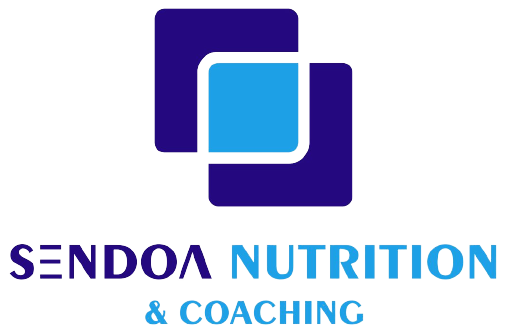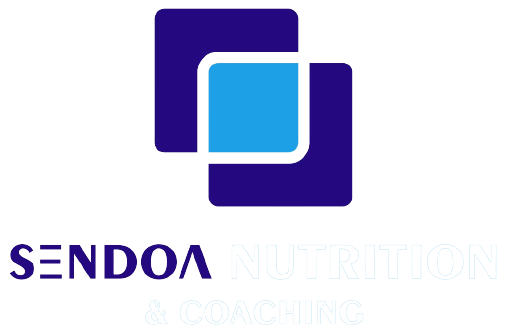Most athletes are dedicated to getting the training done, but many fall short when it comes to getting the nutrition they need. Some people fall into the trap of thinking, “I’m training for ___________, so I can eat whatever I want.” While other people think that as an athlete they are required to eat “clean” all the time and only eat unprocessed, whole foods. For most athletes, the truth is, good sports nutrition is somewhere in the middle. As an athlete you are pushing your body to the limits and this requires adequate protein and carbohydrates, fiber and antioxidant rich fruits and vegetables, appropriate amounts of healthy fats, and proper hydration. But also as an athlete, you are burning more calories than the average non-athlete, so you have a little more room for some discretionary calories (i.e. treats). The hard part is determining when you’ve drifted too far into one of these schools of thought around training and nutrition because symptoms can be similar. If you are following the thought process of, “I can eat whatever I want” you may end up with brain fog, fatigue, feeling like you’re not recovering from workouts well, disruptions to sleep, mood swings, performance plateaus, and even weight gain. The symptoms of eating “clean” all the time could also be similar because you may not be getting enough carbohydrates to fuel workouts properly and recovery adequately, this can put the body under stress and cause an increase in cortisol which can lead to mood swings, fatigue, sleep disruptions and even weight gain. So, what is an athlete to do? Hiring a sports nutritionist can be both life and performance changing.
While it is easy to find calculators online that will help you determine your caloric needs, these calculators are not always designed with athletes in mind and may underestimate caloric needs. Then there is the challenge of knowing how to break down those calories – what amount of each macronutrient (fat, carbohydrate and protein) do you need? The answer will vary depending on individual factors such as age and weight as well as your sport and performance goals. The next challenge is knowing when to consume those macronutrients and in what quantities. This is where a sports nutritionist becomes really key – sports nutritionists having the expertise to help athletes determine how to fuel before and after workouts as well as in daily life.
To make things even more complicated, there are also supplements to consider. Most people take supplements, but as an athlete do you know which ones may help or hinder your performance? What about the timing of those supplements? These are hard questions to answer on your own, but a sports nutritionist keeps up with the latest research to ensure you are getting up to date information on appropriate supplementation for your sport.
As you can see, sports nutrition is not simple. There are many factors to consider when fueling optimally for performance. The first, and simplest, step is determining energy (calorie) needs and balancing the macronutrients appropriately, but after that things become more complicated and hiring an expert to guide you can make a huge difference in your performance. Below I will provide you with the tools you need to determine your energy and macronutrient needs, but keep in mind, that is only the first step to optimizing your sports nutrition.
How to determine calorie needs:
If you have had your body fat professionally measured (either via a DEXA scan or hydrostatic weighing) I recommend using this calculator because it bases your energy needs off of your lean muscle mass, which has been shown to be more accurate for athletes.
If you have not had your body fat professionally measured, you can use this calculator
Both calculators have a place to enter your activity level to determine your total energy needs – basal metabolic rate (how many calories you need at rest) as well as calories burned through activity (life and training).
Once you have your calorie needs, the next step is determining how to allocate those calories to the three macronutrients – fat, carbohydrate and protein. I always start by determining the protein and carbohydrate needs first and then use the remaining calories to determine fat intake.
For reference, both carbohydrate and protein contain 4 calories per gram (e.g. 20g of protein x 4 calories = 80 calories). Fat contains 9 calories per gram.
Protein – protein needs range from 1.4-2.2grams/kilogram of body weight. Protein needs also change when an athlete is injured.
Endurance athletes – 1.7-1.8grams per kilogram
Strength/power athletes – 2-2.2grams per kilogram
Team sports – 1.8grams per kilogram
Carbohydrate – carbohydrates have the widest range of need depending on the sport. Needs can range from 3-5 grams per kilogram per day to as high as 12 grams per kilogram per day.
3-5g/kg per day – lower intensity/skill based activity
5-7g/kg per day – moderate exercise up to 1 hour
6-10g/kg per day – Endurance training 1-3 hours per day of moderate to high intensity
8-12g/kg per day – Elite level training, 4-5+ hours per day of moderate to high intensity
Example Athlete – Male soccer player, weighing 175 lbs(79.4kg), body fat percentage 10% (no weight loss goals at this time), trains 2 hours per day 6 days per week.
His body fat percentage is known, so the Cunningham Equation was used and determined energy needs are 3315 calories per day.
He is a team sports athlete so protein needs are – 79.4 x 1.8 = 142.92 grams (round up to 143)
143 grams x 4 calories/gram = 572 calories from protein
He trains 2 hours per day, 6 days per week – we go with the lower end of the endurance training at 7g/kg per day – 79.4 x 7 = 555.8 grams per day (round up to 556)
556 grams x 4 calories per gram = 2,224 calories from carbohydrates
Add up the 572 calories from protein and the 2,224 calories from carbohydrates = 2,796 calories
To determine his dietary fat intake, take the total calorie needs of 3315 and subtract the calories from protein and carbohydrates, and then divide by 9 calories per gram.
3315 – 2796 = 546/9 = 60.6 (round up to 61) 61 grams per day.
If you’re interested in learning how to optimize your performance through personalized nutrition, fill out a “Contact Us” request form and we will be in touch.



